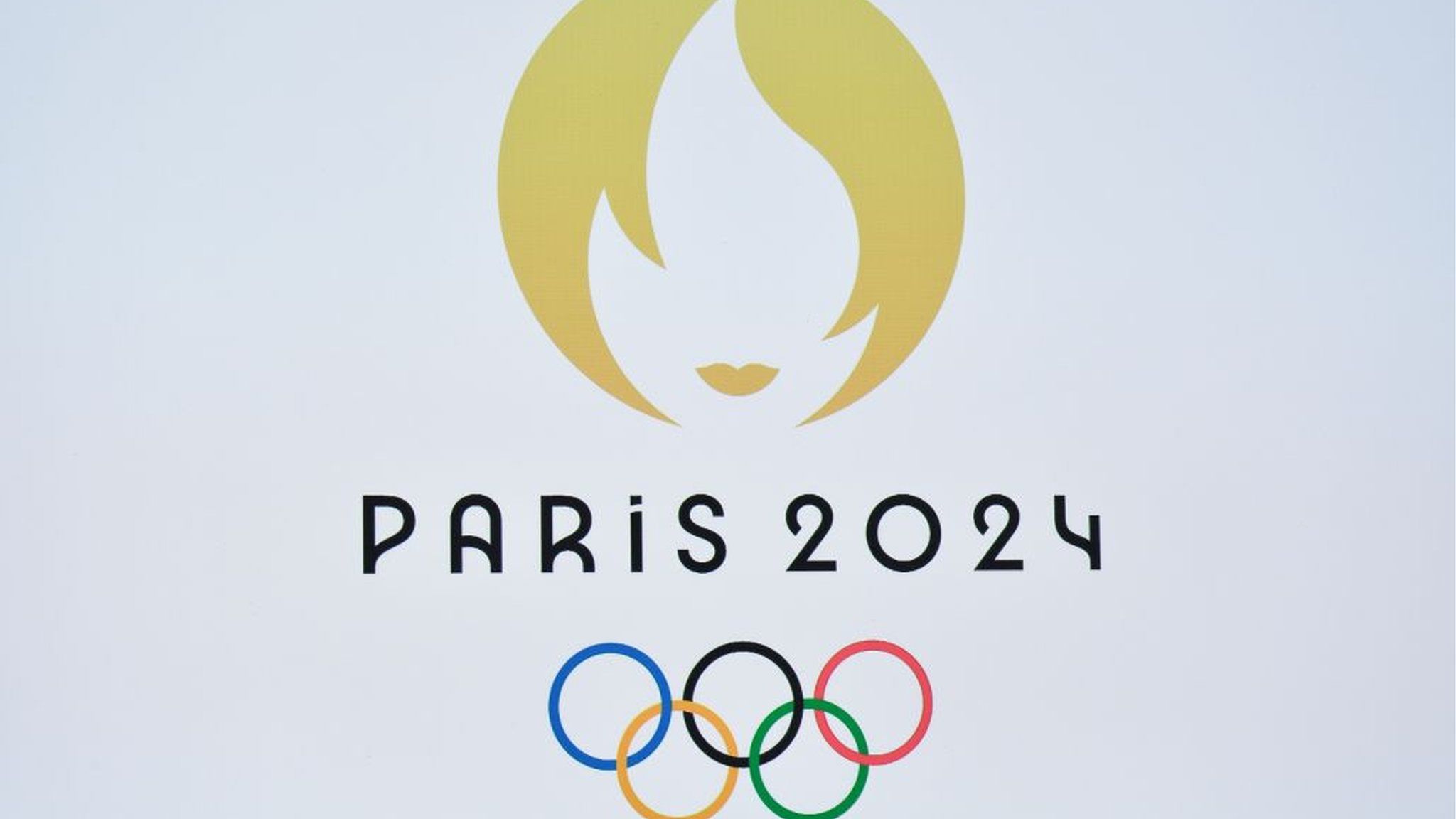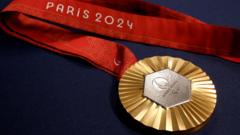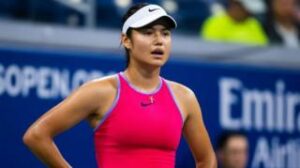Olympics opening ceremony – the show-stopping outfits
As the Paris 2024 Olympics gets under way, BBC Sport looks at some of the best recent opening ceremony outfits.
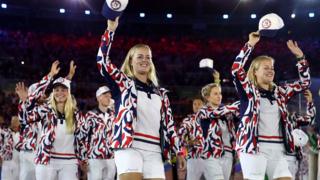
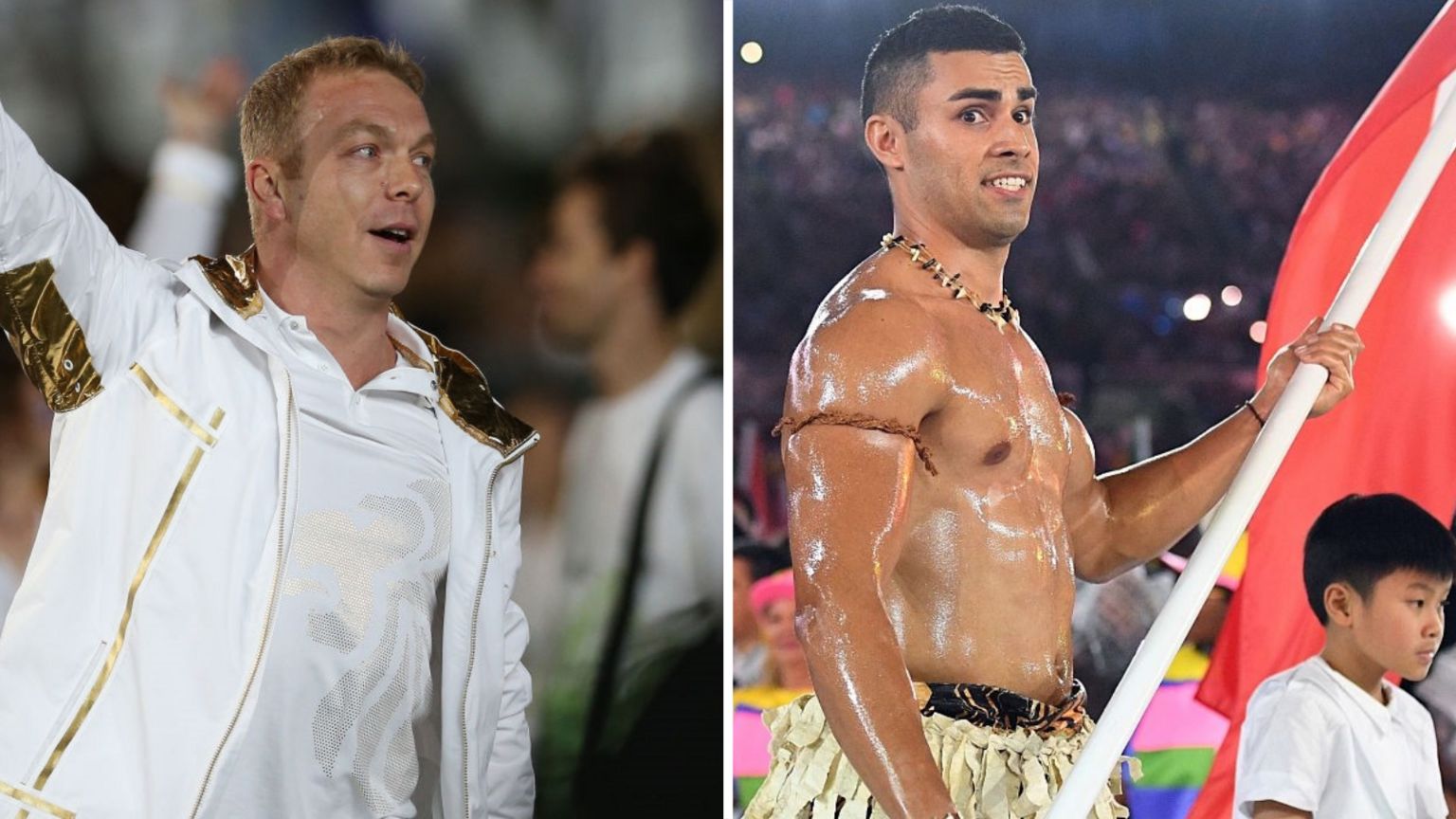
The opening ceremony is a chance for Olympians to shine even before the medal chase has begun.
Paris 2024 begins officially on Friday, 26 July with the opening ceremony taking place along the River Seine.
Competing nations have already begun releasing outfits. Among them, Team Mongolia’s ivory-coloured ceremonial garments have gone down particularly well.
BBC Sport has rounded up a non-exhaustive list of some of the most memorable outfits from recent opening ceremonies – and looked at highlights of the countries’ Games campaigns.
Vote for your favourite at the bottom of the article.
Japan (Sydney 2000)
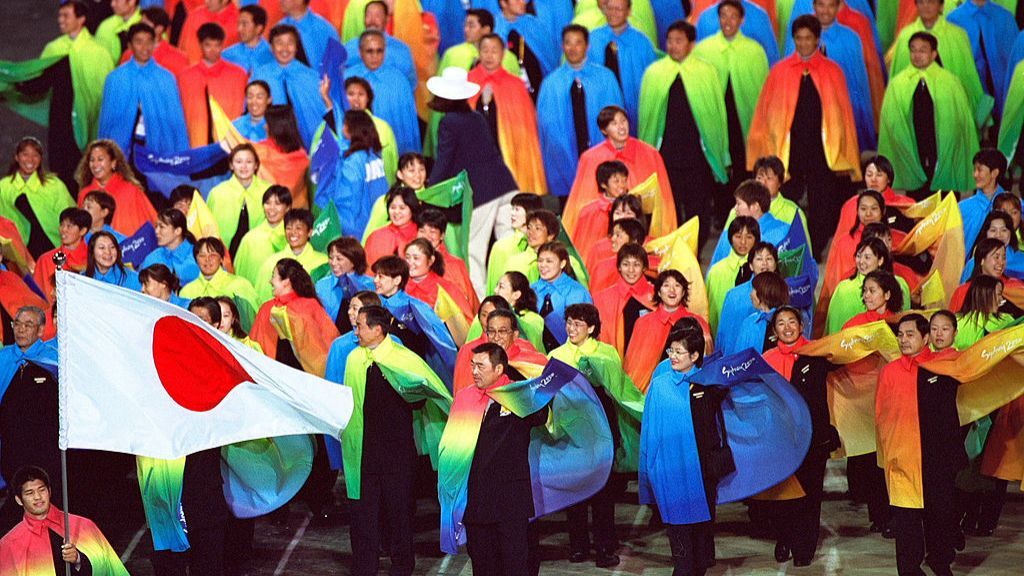
Japanese distance runner Naoko Takahashi took gold in the event at the Sydney Olympics, becoming the first Japanese woman to win an Olympic athletics title. It was later reported that she drank the stomach juices of giant killer hornets to help with her performance.
Spain (Sydney 2000)
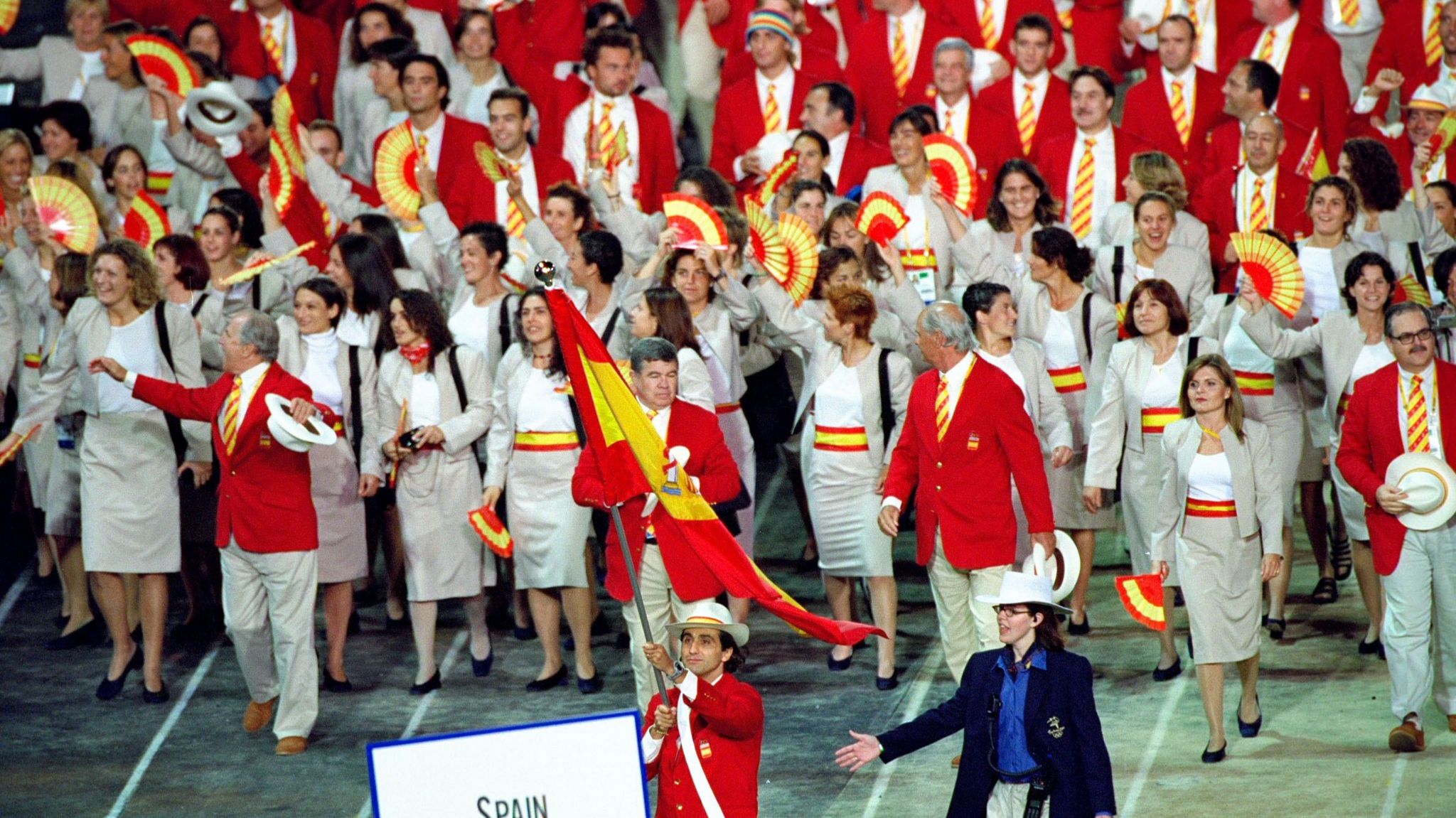
Spain won three gold medals at the Sydney Games. Judoka Isabel Fernandez took gold in the lightweight division, cyclist Joan Llaneras won the points race and gymnast Gervasio Deferr won the men’s horse vault.
Japan (Athens 2004)
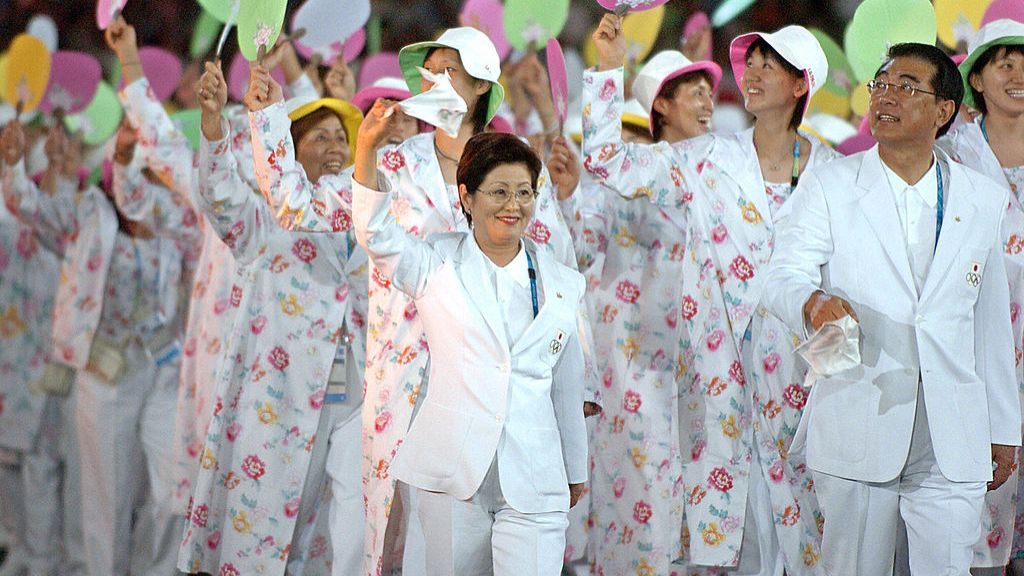
Japan finished fifth in the medal table at the Athens Games, behind the United States, China, Russia and Australia. They took home 37 medals, including 16 golds.
Jamaica (London 2012)
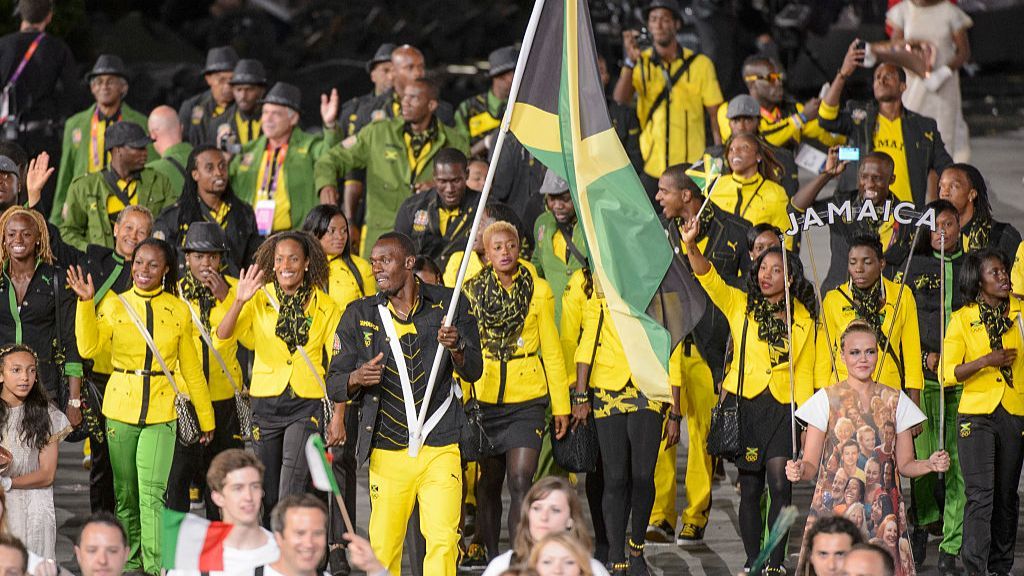
Usain Bolt carried Jamaica’s flag at the 2012 opening ceremony. The sprinter set an Olympic record of 9.63 seconds in the men’s 100m final.
Malaysia (London 2012)
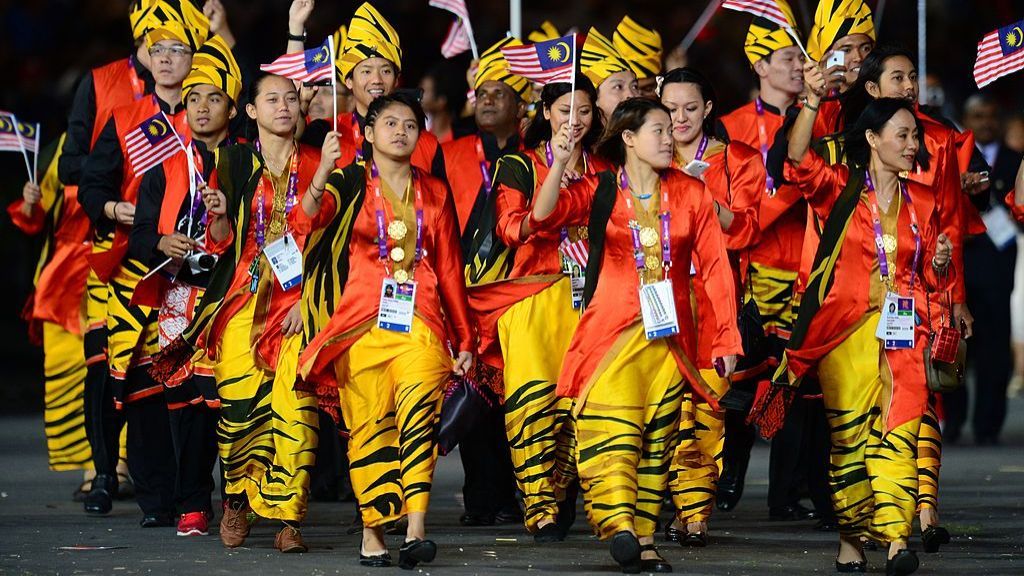
Malaysia won two medals at the London Games. Diver Pandelela Rinong took bronze in the women’s 10m platform event and made history by becoming the first Malaysian female athlete to win an Olympics medal.
Team GB (London 2012)
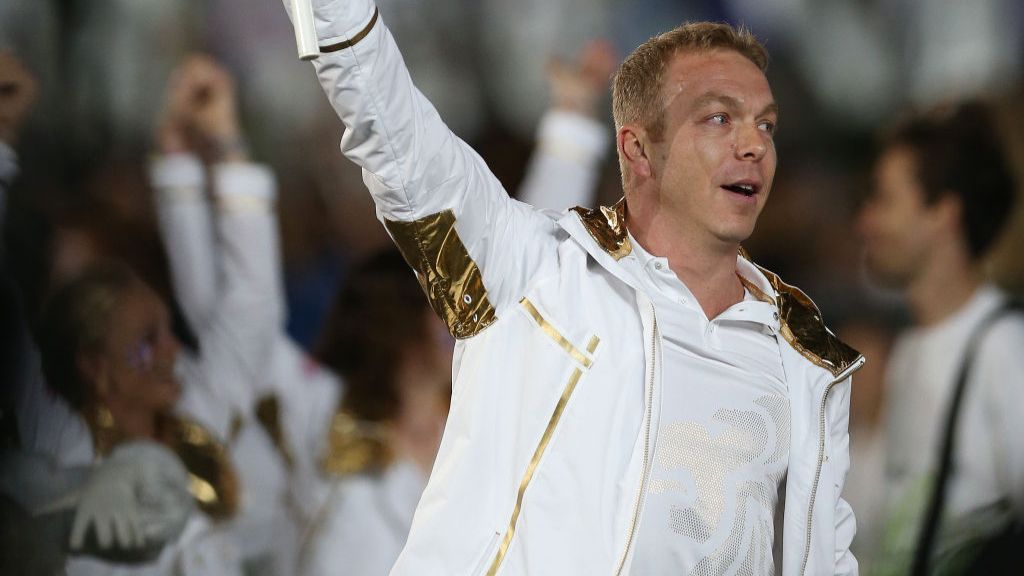
London 2012 was Team GB’s most successful Games since 1908, with 65 medals. On Super Saturday, Jessica Ennis-Hill, Greg Rutherford and Mo Farah won gold medals at the Olympic Stadium in the space of 44 minutes.
Flagbearer Sir Chris Hoy won a historic treble of golds.
Sweden (London 2012)
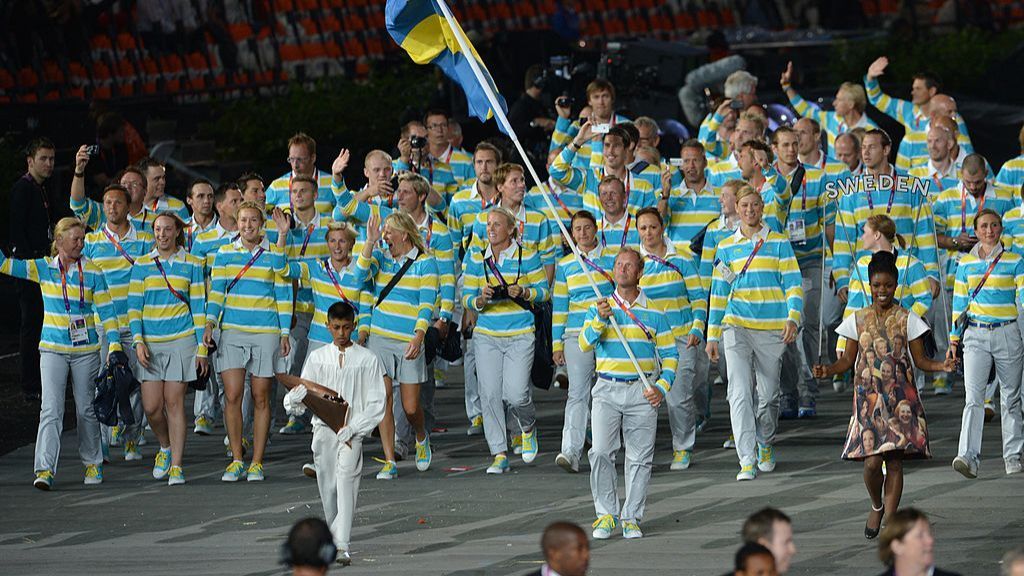
Sailing duo Fredrik Loof and Max Salminen took Sweden’s only gold at London 2012 in the keelboat event.
Indonesia (Rio 2016)
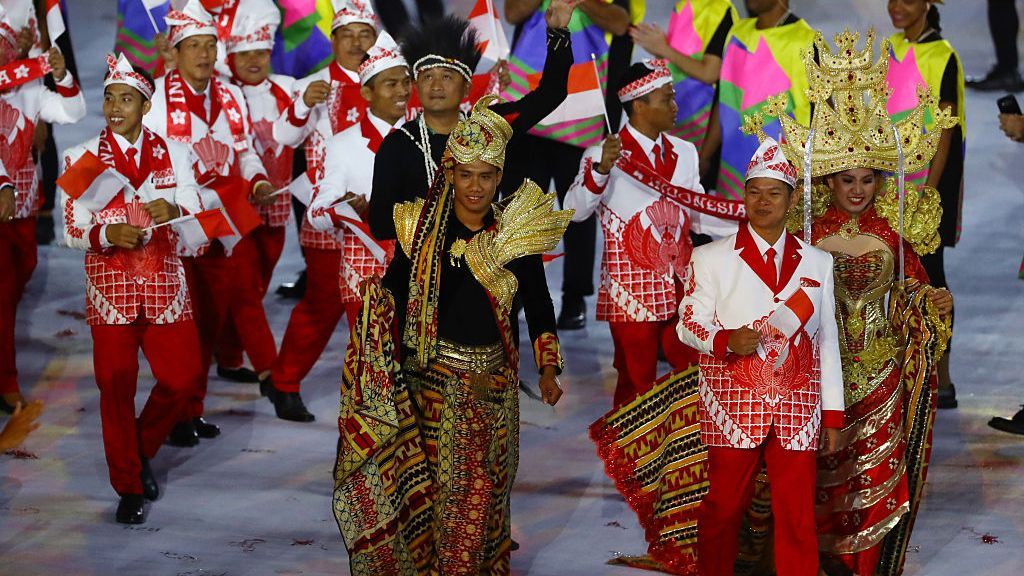
Indonesia won three medals at the Rio Games. Alongside two silver medals in weightlifting, Tontowi Ahmad and Liliyana Natsir won gold in the badminton mixed doubles event.
Norway (Rio 2016)
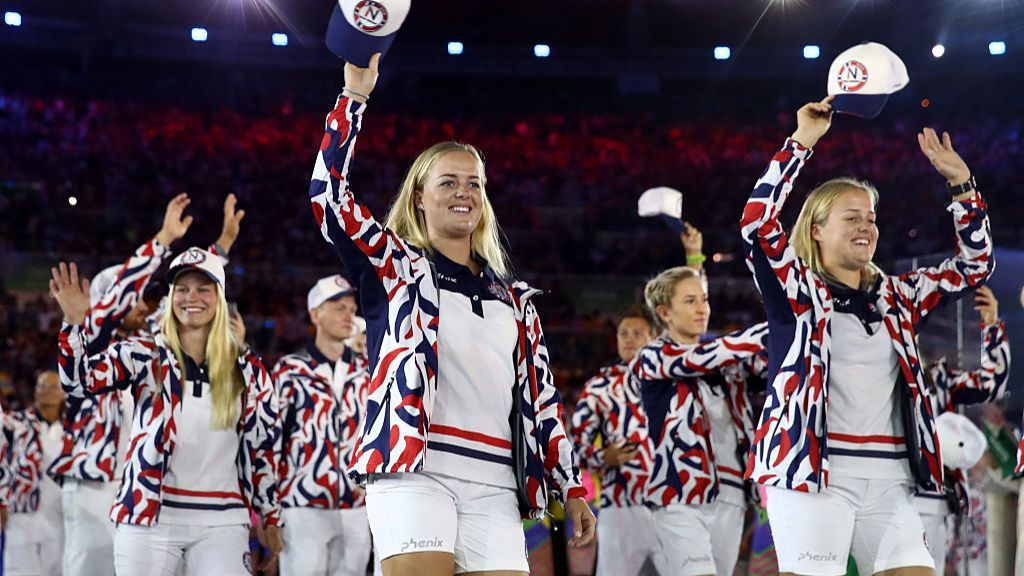
Norway took home four bronze medals at Rio 2016. The Norwegian women’s handball squad entered the Games as two-time defending Olympic champions, but they were beaten 38-37 by Russia in the semi-finals.
Cameroon (Rio 2016)
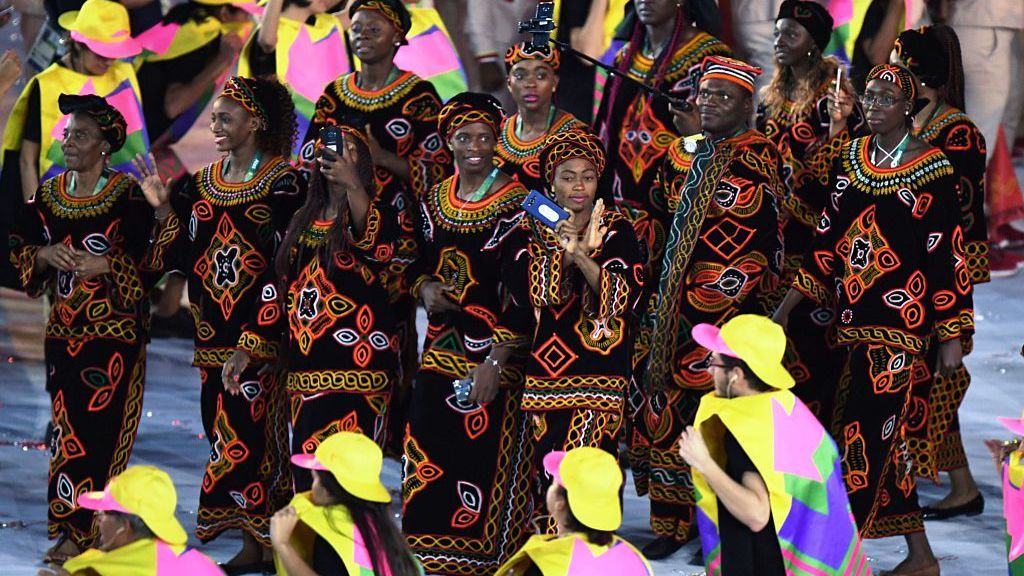
Cameroon have won six Olympic medals, including the gold won by the men’s football team at Sydney 2000, with a team that included iconic stars such as Arsenal ‘Invincible’ Lauren and four-time Champions League winner Samuel Eto’o.
Tonga (Rio 2016)
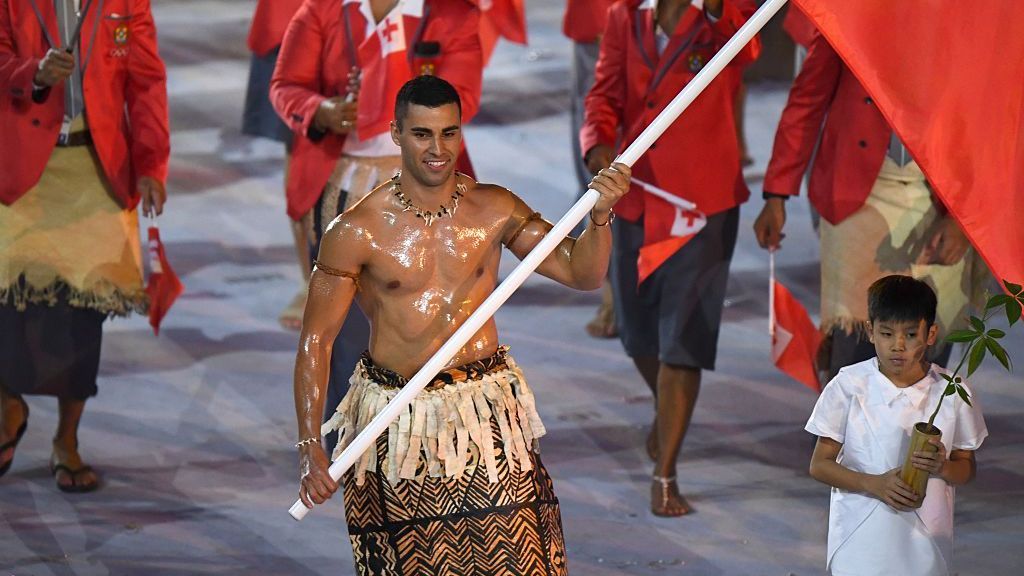
Tonga’s flagbearer Pita Nikolas Taufatofua became famous at Rio 2016, where, as well as showing off his oiled-up torso, he also competed in taekwondo.
The Tongan polymath also competed in cross-country skiing at PyeongChang 2018 and tried to qualify for Paris 2024 in kayaking. He has also been helping to coach Tonga’s taekwondo team for Paris 2024.
Australia (Rio 2016)
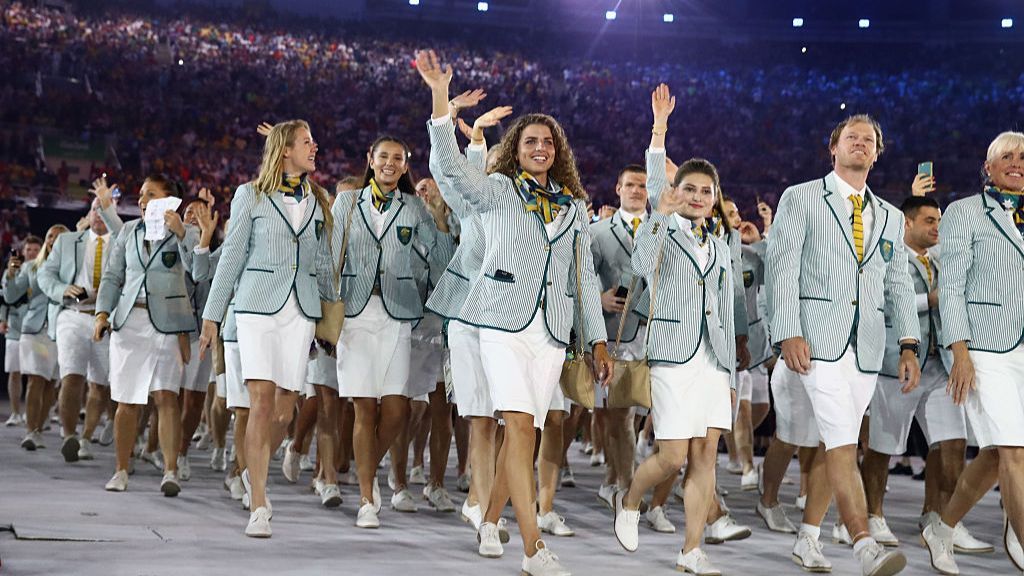
For the first time, there were more women than men in the Australian summer Games team. Cyclist Anna Meares, who had won gold medals in Athens and London, was chosen to be the flagbearer.
USA (Tokyo 2020)
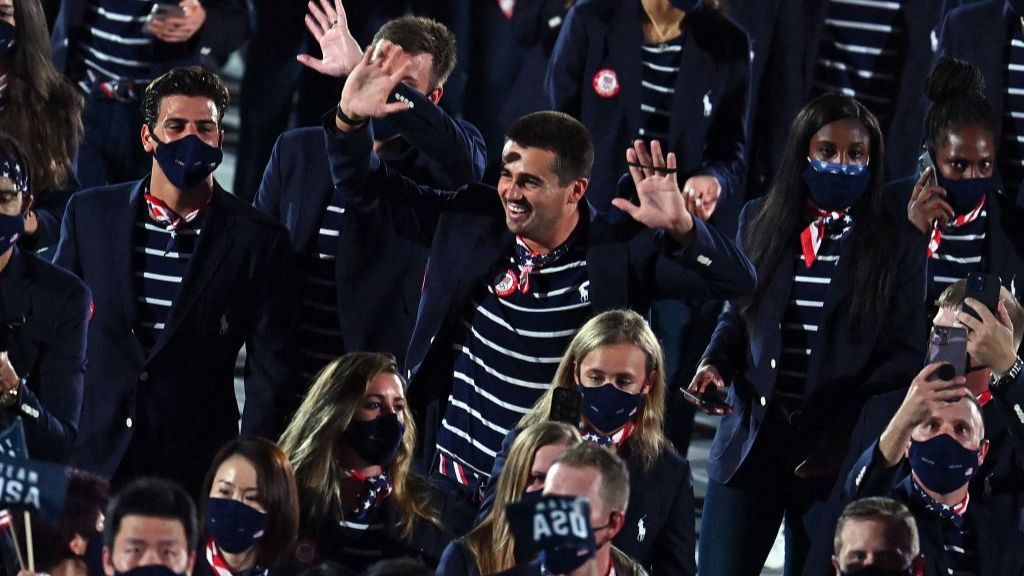
At Rio 2016, Team USA topped the medal chart in every category for the seventh time in Olympics history, with 121 medals, including 46 golds.
Tuvalu (Tokyo 2020)
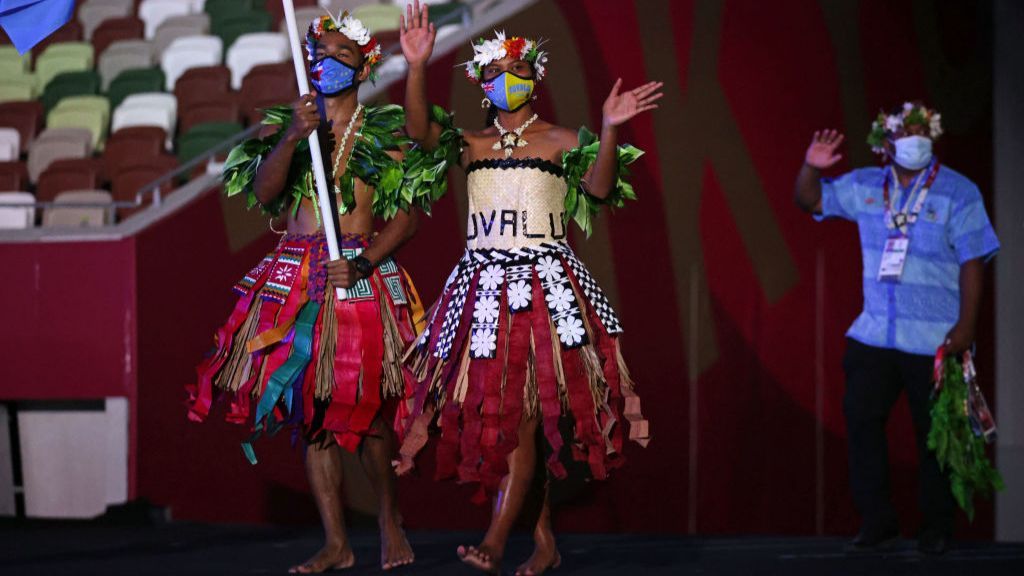
Tokyo 2020 marked the fourth consecutive appearance at a summer Games since their 2008 debut for Oceanic island nation Tuvalu. The country sent two track and field athletes – Matie Stanley and Karalo Hepoiteloto Maibuca.

